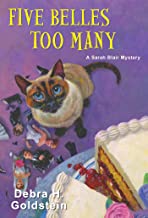A mouse propelled me into crime. I was twelve years old, and I didn’t like what I was seeing . . . or smelling. Most sixth grade science classes use frogs to dissect, but for whatever reasons, our teacher decided on mice, little white mice to be exact, with pink noses, tiny paws, and bright eyes. The mode of demise was to drop them into a large, acrid jar of formaldehyde and watch them drown in the awful stuff. Then we got to cut them open, a nasty business, but by then they didn’t feel anything.
It was the jar thing that got to me. It never occurred to me to confront the teacher. I was way too shy. Most of the time, I felt disconnected from my classmates who viewed me as a bookworm, and therefore, suspect and strange. I failed cheerleading in the second grade, not able to comprehend why I was waving a pompom and jumping up and down. Reading and horses were my passions. The lone friend from third grade who fit that bill had been sent to a private school.
Boys were simply alien creatures.
I debated internally with my discomfort, eyeing the box that held more victims waiting for torture in the following class periods. Not acting would make me an accomplice to more killings. But stealing was wrong, right? I balanced on the edge of a moral dilemma.
With the ringing of the bell signaling the end of the period, I made my decision. The teacher stepped outside into the hall to take up his monitoring duties. I dithered with my books and papers, nothing that would arouse suspicion since I always seemed to be the last person ready to go anyway. The rest of the class poured out, eager for the next period (the end of which they would just as eagerly await). Heart kicking in my chest, I casually walked behind the teacher’s wooden desk, squatted, opened the case, snatching the first ball of squirming white fur that came to hand.
The rest of the day, I sweated, certain my theft would be uncovered, but the plump little guy curled up in the pocket of my sweater and slept. I didn’t dare share my crime with anyone.
When I finally got home with my illegal gain, I officially named him Copernicus—after the 16th Century astronomer who proposed the radical theory that the planets revolved  around the sun—giving homage to his science origin, and put him in an old birdcage. My father, as usual, was oblivious, and any objection could have been easily overcome by claiming mother had already approved, a tactic I had perfected on both of them. But my mother only raised her eyebrows at the new pet. I glibly lied, telling her the science teacher had purchased too many and didn’t mind me taking one home, and she didn’t ask too many questions.
around the sun—giving homage to his science origin, and put him in an old birdcage. My father, as usual, was oblivious, and any objection could have been easily overcome by claiming mother had already approved, a tactic I had perfected on both of them. But my mother only raised her eyebrows at the new pet. I glibly lied, telling her the science teacher had purchased too many and didn’t mind me taking one home, and she didn’t ask too many questions.
Copernicus spent happy days crawling from one hand to the other, his tiny paws tickling; or curling up at the back of my neck under my hair for a nap while I read; or exploring the vast landscape of my bed. My dog, Samson, a collie mix, was fascinated, watching him down his long nose without blinking as long as the mouse was in eyesight, seeming to understand that any overt move would break the spell. Gradually, Copernicus seemed to lose his fear. At once point, they actually touched noses. I watched Samson almost as carefully as he watched the mouse, but Sam never gave any indication of aggressiveness. In fact, I think he was in love.
Then one day, things went terribly awry.
Copernicus was missing from his cage. I saw movement in the corner under some scraps of newspaper he had torn from his bedding. To my surprise, it was a nest containing several tiny, naked things, and I realized that Copernicus had been Copernica all along. With the births, she had lost her girth and squeezed through the bars of the cage.
Alas, I found her under the bed. Cause of death was a mystery. Other than being wet, there was no sign of any wound or broken bones, not even her neck. She was just dead. She had to have crawled there on her own, because Sam was too big to fit under the bed. I suspected at some point, however, he had put his mouth on her, perhaps to try and bring her to me. She may have had a heart attack or a problem related to giving birth. I will never know and only hope it was a better death than drowning in formaldehyde.
The episode was life changing. Although I liked science, I opted for Latin to avoid having to kill and cut on animals. The following year, I required major surgery to take out an appendix that had grown around my spine. It took two weeks to recover, and I did poorly on a Latin test. I did well in Latin, but it wasn’t because I could translate. Instead, my classmates and I were the recipients of a fellow student’s translation copies. Not sure where he got them and highly doubted he translated them himself. He would never say. In any case, since we knew in advance what excerpts of Julius Caesar’s The Gallic Wars we would be tested on, I simply memorized the hard parts and was a consistent “A” student in class. The hospitalization and recovery period, however, cut off my access to the translations.
Whether the teacher knew what was going on or just put my poor performance off on my illness, I never knew. For whatever reason, she offered me an independent reading project as extra credit, which I eagerly agreed to. The book was A Pillar of Iron by Taylor Caldwell, a historical novel about the Roman philosopher, orator, and statesman, Marcus Tullius Cicero,  who stood up to the corrupt politicians of his day, refusing to be bought off or to dishonor his beloved country or abandon his ideals. He was assassinated. The story and its ending, which occurred while I was sitting on my bed—still my favorite reading spot—sent me into a bout of hysterical weeping that scared even my little sister. She ran upstairs for mother, who was not available. Reluctantly, I am sure, my father responded to the crisis.
who stood up to the corrupt politicians of his day, refusing to be bought off or to dishonor his beloved country or abandon his ideals. He was assassinated. The story and its ending, which occurred while I was sitting on my bed—still my favorite reading spot—sent me into a bout of hysterical weeping that scared even my little sister. She ran upstairs for mother, who was not available. Reluctantly, I am sure, my father responded to the crisis.
Sitting on my bed, he approached the problem logically. “What is wrong?”
I was unable to answer.
“What is wrong, baby? Whatever it is, we will fix it.”
More crying. Probably snot running.
Becoming more and more concerned at my tears, my gasping for breath, and inability to respond as to the source of the problem, my father’s worry was evident. Being an engineer by education and mental alignment, he was ill equipped to handle his daughter’s distraught emotional state. Finally, he gave voice to the worst disaster he could think of, the nuclear option. Although I had just turned thirteen, he asked, “Are you pregnant?”
I shook my head and managed to say in halting gasps, “They . . . killed . . . him!”
Appalled that the worst scenario he imagined might, in fact, not be the worst, that we might be dealing with a murder, possibly in my presence or, at the least, of someone I knew, he demanded, “Who? Who was killed?
“They . . . killed . . . Cicero!” I sobbed.
“Cicero? Who is Cicero?”
Eventually, I was able to explain, but I never forgot the power of words and story. It sparked within me a desire to be a writer, a flame that has continued to burn for many years. Now it is a habit and passion I doubt I will ever forsake. And if not for a mouse, I might never have realized it, or perhaps I would have chosen another path, hopefully not a life of crime, but you never know.
Still, the mouse episode remains an illustration of life’s complexity and mystery.
Copernica had good days, days she might not have had. But maybe she was lonely without her fellows, in spite of her rescue and Sam’s attentions. I also don’t know why she decided to try a jailbreak. Perhaps she wasn’t ready for motherhood. Who can know the mind of a mouse? But she died because of me. I wasn’t able to save her newborns. I couldn’t decide if I had done the right thing, stealing her and being the proximate cause of her death. With all good intentions, sometimes things go wrong. Does the end justify the means or nullify the intent? Is a good deed still good if the consequences are not? Is a crime a crime, or is it—as everything else seems to be—entirely relative?
I’m still pondering, a fact that works its way with regularity into my writing.

T.K. Thorne writes wherever her imagination flies.


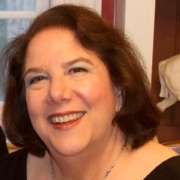


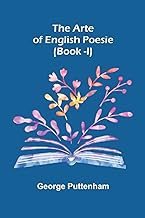
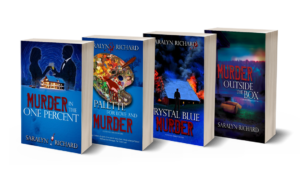

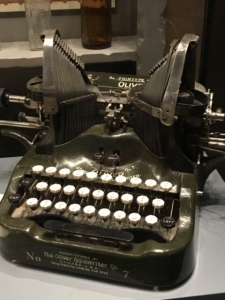 In 1962, my mother registered me for a writing class that was offered in summer school after the eighth grade. Only one other girl signed up, so the class was cancelled.
In 1962, my mother registered me for a writing class that was offered in summer school after the eighth grade. Only one other girl signed up, so the class was cancelled.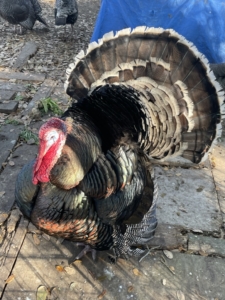
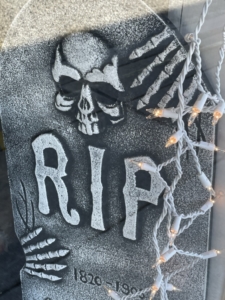 I began writing suspense/mysteries in the 80s. My father was a criminal defense lawyer, (and later a judge), so I’d been around the law since I was little. I had been a probation officer and was at that time a criminal and family lawyer. Crime, I knew about. By the way, I heard that not long after the aforementioned editor rejected my novel, she died. Just so you know, I didn’t kill her.
I began writing suspense/mysteries in the 80s. My father was a criminal defense lawyer, (and later a judge), so I’d been around the law since I was little. I had been a probation officer and was at that time a criminal and family lawyer. Crime, I knew about. By the way, I heard that not long after the aforementioned editor rejected my novel, she died. Just so you know, I didn’t kill her.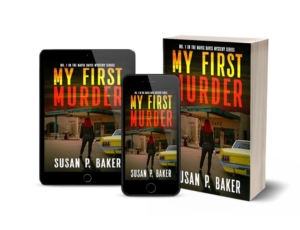

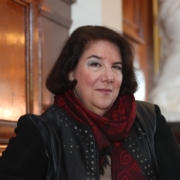

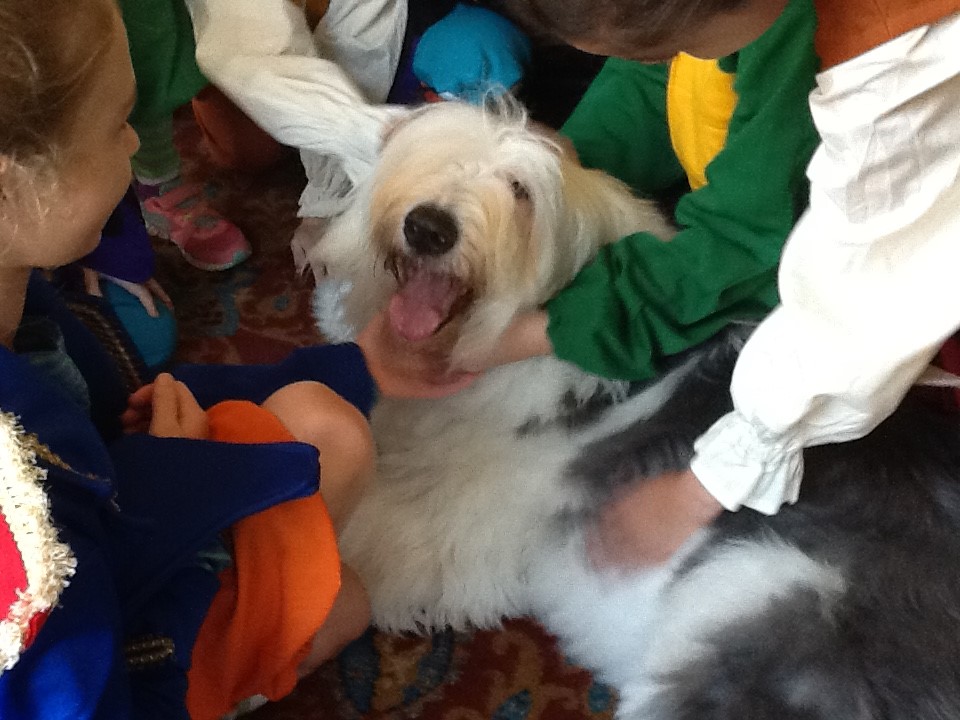
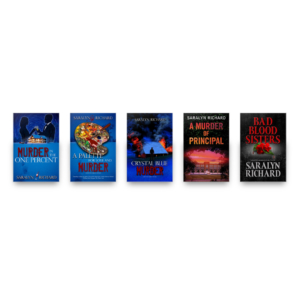
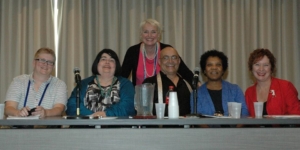 The Arts Are For Everyone! by Linda Rodriguez
The Arts Are For Everyone! by Linda Rodriguez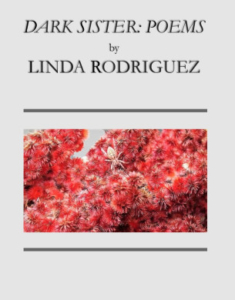
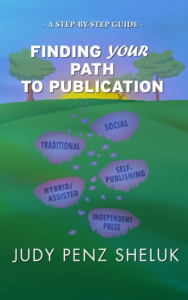 I’m delighted to welcome Judy Penz Sheluk as my guest to talk about her new release: Finding Your Path to Publication: A Step-by-Step Guide. Because I’ve loved her two fiction series: The Glass Dolphin mysteries and the Marketville mysteries, I know this will be a valuable non-fiction tool for writers. See you next month! —Debra H. Goldstein
I’m delighted to welcome Judy Penz Sheluk as my guest to talk about her new release: Finding Your Path to Publication: A Step-by-Step Guide. Because I’ve loved her two fiction series: The Glass Dolphin mysteries and the Marketville mysteries, I know this will be a valuable non-fiction tool for writers. See you next month! —Debra H. Goldstein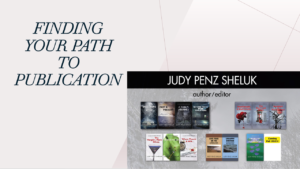 published and publishing options than whether I (or anyone else) had succeeded at NaNoWriMo. That led to the librarian asking if I might be willing to prepare a presentation on the topic. I remembered how much I’d learned since signing my first book contract in 2014, and not all those lessons came easy. In fact, some of them were downright painful.
published and publishing options than whether I (or anyone else) had succeeded at NaNoWriMo. That led to the librarian asking if I might be willing to prepare a presentation on the topic. I remembered how much I’d learned since signing my first book contract in 2014, and not all those lessons came easy. In fact, some of them were downright painful.
 around the sun—giving homage to his science origin, and put him in an old birdcage. My father, as usual, was oblivious, and any objection could have been easily overcome by claiming mother had already approved, a tactic I had perfected on both of them. But my mother only raised her eyebrows at the new pet. I glibly lied, telling her the science teacher had purchased too many and didn’t mind me taking one home, and she didn’t ask too many questions.
around the sun—giving homage to his science origin, and put him in an old birdcage. My father, as usual, was oblivious, and any objection could have been easily overcome by claiming mother had already approved, a tactic I had perfected on both of them. But my mother only raised her eyebrows at the new pet. I glibly lied, telling her the science teacher had purchased too many and didn’t mind me taking one home, and she didn’t ask too many questions. who stood up to the corrupt politicians of his day, refusing to be bought off or to dishonor his beloved country or abandon his ideals. He was assassinated. The story and its ending, which occurred while I was sitting on my bed—still my favorite reading spot—sent me into a bout of hysterical weeping that scared even my little sister. She ran upstairs for mother, who was not available. Reluctantly, I am sure, my father responded to the crisis.
who stood up to the corrupt politicians of his day, refusing to be bought off or to dishonor his beloved country or abandon his ideals. He was assassinated. The story and its ending, which occurred while I was sitting on my bed—still my favorite reading spot—sent me into a bout of hysterical weeping that scared even my little sister. She ran upstairs for mother, who was not available. Reluctantly, I am sure, my father responded to the crisis.

